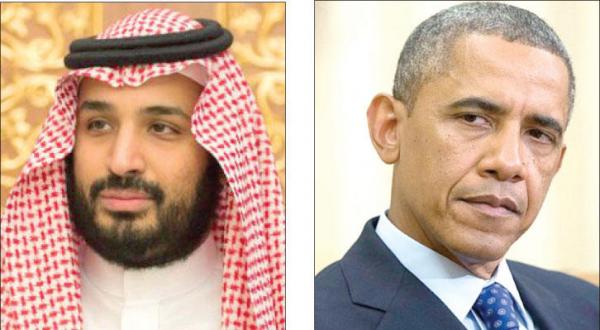While the White House announced President Barack Obama’s welcoming of Saudi Arabia’s announcement that it is prepared to send ground troops to fight ISIS in Syria, a military source at the US Department of Defense told Asharq Al-Awsat yesterday that the Secretary of Defense Ashton Carter is determined to discuss the details of the military plan and the new role of Saudi ground troops in the fight against ISIS with his Saudi counterpart Prince Mohammed bin Salman at their next meeting in Brussels.
The spokesman for the White House Josh Ernest yesterday said that “We welcome this initiative by the Kingdom of Saudi Arabia” and added that Carter will discuss accelerating efforts to fight ISIS and details of Saudi Arabia’s commitment to this with Prince Mohammed bin Salman and the defence ministers of other countries (a total of 24 ministers) in Brussels next week. He expressed “his hope” that “other countries take similar steps to speed up the campaign against ISIS”.
Meanwhile, the President of the National Coalition for Syrian Revolutionary and Opposition Forces Khaled Khoja told Asharq Al-Awsat that “intervention by friends, especially Arab friends, to support the Syrian resistance and the Free Syrian Army (FSA) was necessary since the beginning of direct confrontations between the FSA and Shiite militias on the one hand, and against ISIS on the other. After the Russian intervention, however, this matter has become crucial.”
On the other hand, an official at the Turkish Prime Minister Ahmet Davutoglu’s office refused to comment on the possibility of a Saudi-Turkish initiative through Turkish territory, however he said in a statement to Asharq Al-Awsat that there is close cooperation between the two sides about the Syrian people and there is an agreement not to leave them alone to be killed. He also pointed out that the Turkish chief of staff was part of the Turkish delegation that recently visited Saudi Arabia and that this demonstrates the “great understanding” between the two countries.
In New York, the UN Security Council yesterday blamed the Syrian regime and Russia for the failure of the Geneva 3 talks. After a closed meeting within the Council that was attended by UN envoy Staffan de Mistura, France’s representative François Delattre told reporters that de Mistura explained to the Security Council that the Syrian regime made no concessions in Geneva last week which forced him to freeze the talks and postpone them to the 25th of February. The French delegate laid down three conditions for the resumption of talks and they are: respecting international law with regards to human rights, implementing Security Council resolutions and striving to create a transitional government in Syria.

